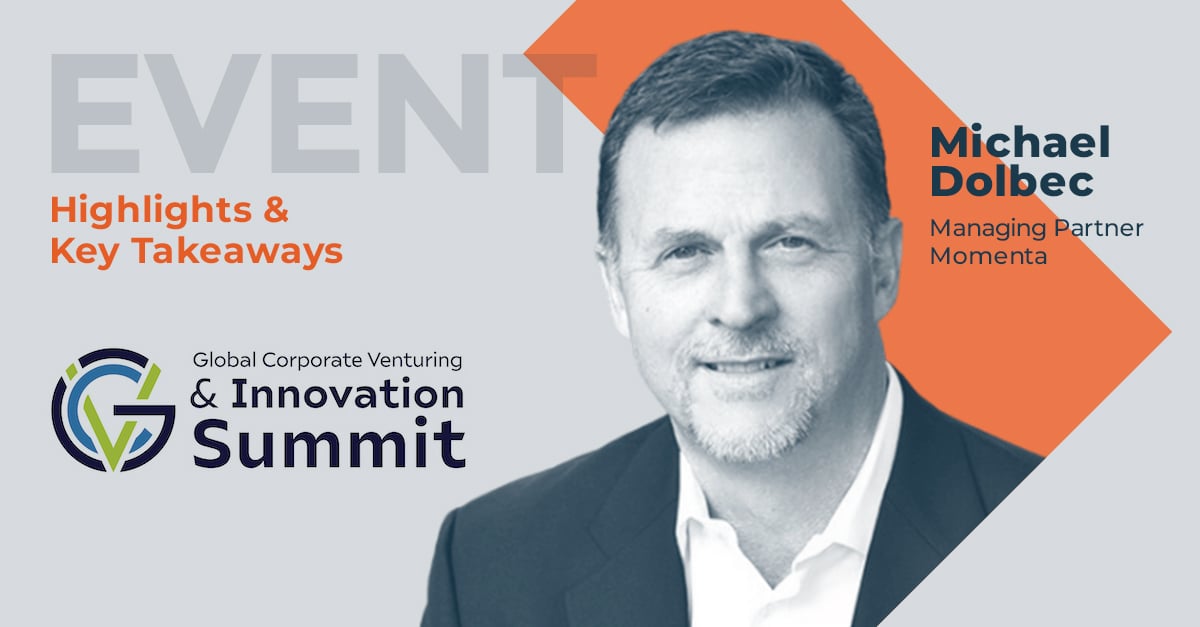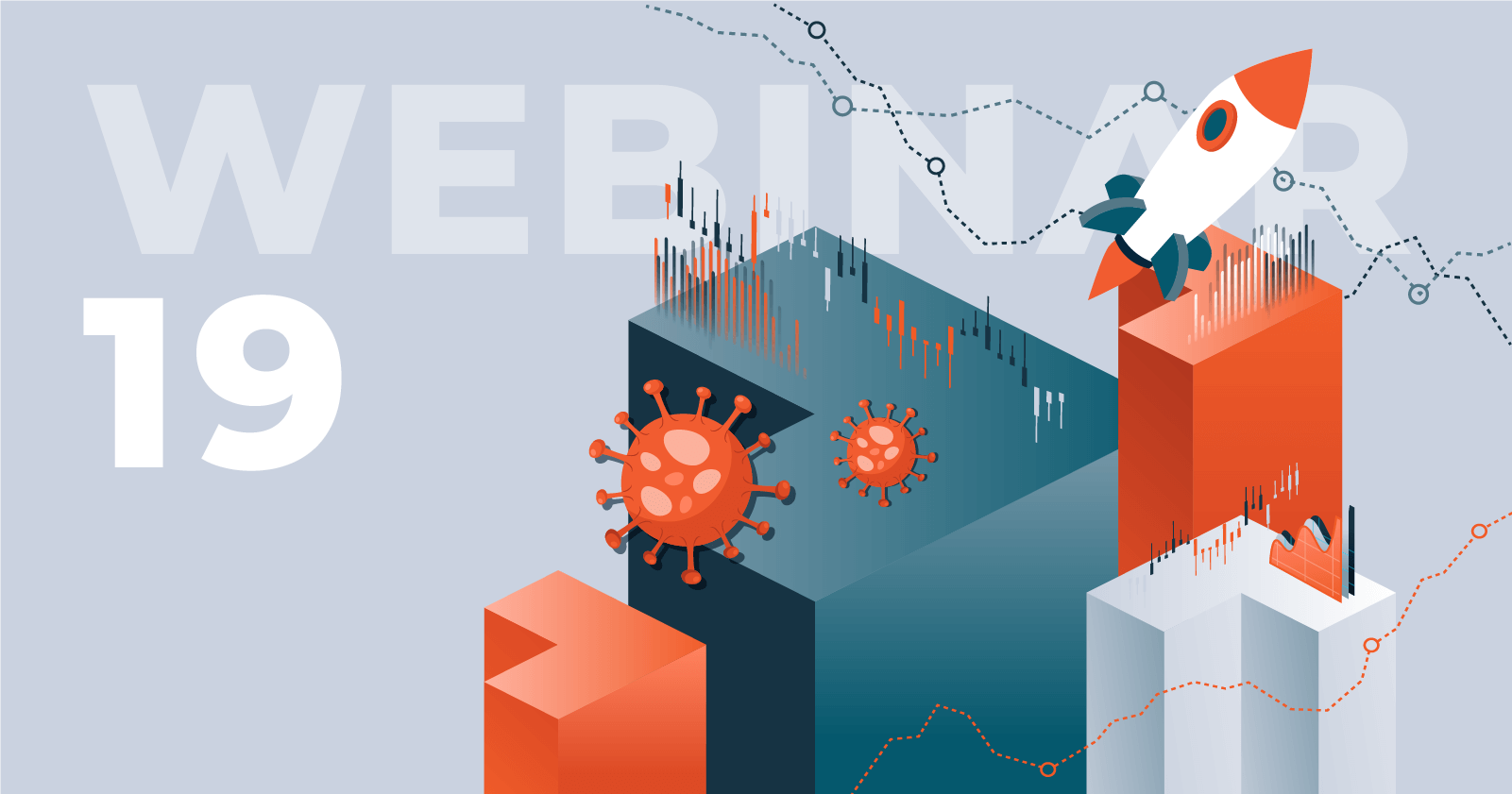Impressions
IoT Solutions World Congress 2018 Highlights
Ken Forster

Business Value From Connected Industry
Four the third year in a row, Momenta made a strong presence at the IoT Solutions World Congress (IOTSWC) in Barcelona. Attendance at the show hit an all time high of over 16,000 visitors and hundreds of speakers including Momenta’s Jesse DeMesa, Jim Fletcher and Ed Maguire. Momenta was joined by its portfolio companies and clients, including Eigen Innovations, ThingStream, Parquery, Hitachi and others. The IoT Solutions World Congress is differentiated from other events through the focus on end users and case studies, showcasing test bed work shepherded by the Industrial Internet Consortium.
From initial proof of concept to production applications
If there was a key theme that stood out, it was that we are increasingly seeing demonstrable value from Industrial IoT solutions as the industry moves beyond initial proof of concepts to production applications. Companies exhibiting at the trade show were less focused on lower level technology such as sensors, modules and connectivity; rather the key messaging emphasized the business cases for technology. Asset tracking, predictive maintenance, process optimization, worker safety, environmental monitoring and energy savings all figured prominently in vendor messaging.
One notable exhibitor this year was Google Cloud, with a prominent booth location emphasizing the company’s growing focus on enterprise IoT following the acquisition of the Xively platform from LogMeIn. Microsoft Azure continues to demonstrate technology and thought leadership in the market with a wealth of compelling industrial use cases on display at the booth. Azure IoT’s Sam George’s keynote showcased a number of customer success stories, notably in construction and building automation. Open source continues to play a major role in IoT. While Red Hat was not an exhibitor this year, Cloudera, Ubuntu and SUSE Linux were all exhibiting.
Connected manufacturing figured prominently in key sessions and on the show floor. Exhibitors PTC and Dassault demonstrated a number of use cases that leverage Augmented Reality and Virtual Reality in the design and production processes.
Testbeds showcased real world innovations
Danish footwear ECCO, a world-leading brand of footwear and leather goods, and its Innovation Lab collaborated with Dassault Systèmes to develop a pilot footwear customization project. For the first time, individual bio-mechanical data is combined with in-store additive manufacturing to create customized silicone midsoles, quantified by the wearer. The midsoles were created inshore using a treadmill and 3D scanner to collect data about foot shape and gait. They're expected to retail in select stores in 2019 and the designers revealed they had received information from Connected Industry where the midsoles could be developed to offer insights into the wearer's health and fatigue levels.
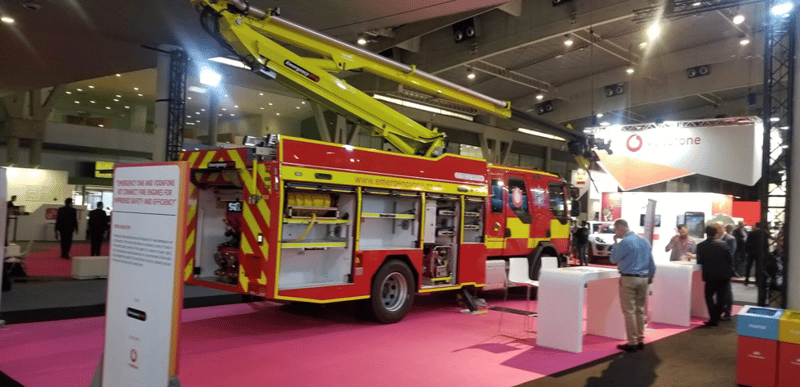
Emergency One vehicle manufacturer joined forces with Vodafone IoT and showcased a set of solutions in fire trucks that allow to automate a series of tasks in the control panel (control of life support kit, amount of water, lights, etc.) and develop a report posterioren on a personalized e1Fleet website, designed for specific Fire and Rescue Services, allowing rescuers to focus on the main job of saving lives.
Forecasting Industry 4.0: New skill sets and collaboration are crucial
We attended an interesting panel on the Fourth Industrial Revolution transformation report by Deloitte. Of 1600 people surveyed – 87% believe Industry 4.0 will lead to more equality and business will have a bigger role in this change than government. Two thirds see businesses impacting societal change, but only 25% are highly confident they have the right skill sets. Automation is a fundamental trend and panelists highlighted a positive view on automation. A century and a half ago, over 50% of the US workforce was in agriculture, now it’s only 4% but the society hasn’t collapsed. New technologies enable us to create new and better products.
There was a lot of discussion around the need for different competitive dynamics – companies in Connected Industry need to think more collaboratively. The challenges ahead are about the application of people to business problems and creating more collaborative roles. The challenge is that most organizations don’t see themselves changing society for the better.
Ed Maguire hosted a panel on Manufacturing and AI and the implications on the Workforce: "How To Survive Machine Automation and Attract New Skilled Workers" with Andy Ellicott, CMO of Crate.io, Willem Sunblad, CEO of Oden Technologies, Alex Hill, Co-Founder of Senseye and Jay Allardyce, EVP of Marketing, Corp Dev & Partnerships at Uptake.
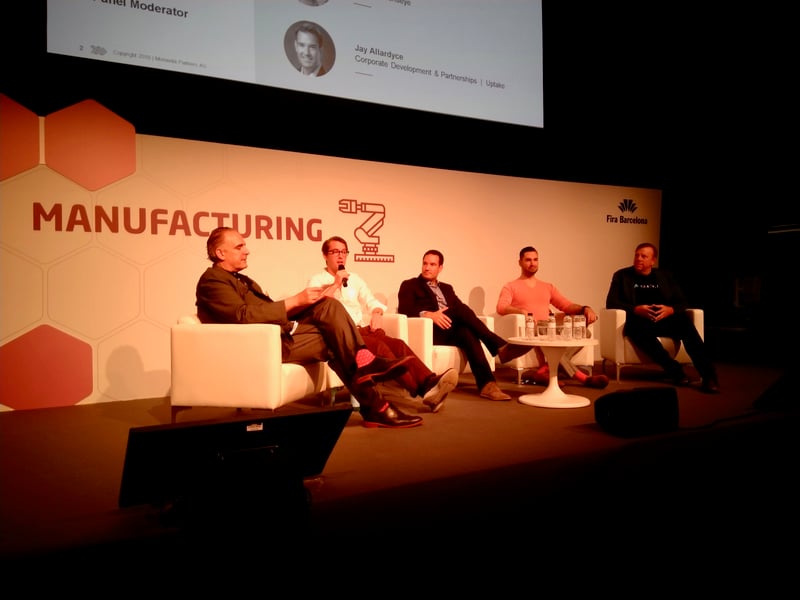
The panel explored the impact that automation and AI have on the manufacturing workforce. When asked how employees respond to the prospect of software-driven automation, Oden’s Willem Sunblad commented that employees are both “terrified and excited”. Software driven automation creates opportunities to refactor the tasks of manufacturing workers, but there are cultural and skill gap challenges involved in bringing an industrial workforce up to speed with data science and advanced analytics.
Despite some concerns over displacement of workers, software driven automation and analytics provide a means to capture much of the tacit, or implicit knowledge. All of the participants were optimistic about the potential for software-driven automation and AI to power transformational changes across the manufacturing industry, but were cautious on the capacity for industry to be able to attract and train highly skilled data scientists to work in locations outside of major urban centers.
Transforming organizations from analog to digital
Figuring prominently across sessions and workshops is the pending implications of Electric Vehicle adoption and the rise of autonomous vehicles. A keynote by ABB’s Rob Massoudi, GVP of Digital Transformation, laid out the challenges an opportunities presented by large scale adoption of electric vehicles, the increase in generation from clean power sources, and the impact on the need for better load management and distribution. Our conversations with participants in the clean energy field see enormous disruption ahead to state and local tax bases – as infrastructure costs will no longer be borne by gas taxes.
Overall the conference highlighted more use cases, more business value and more maturity across the technology stack. The conversations and messaging among attendees were less about technical challenges, and increasingly about the major challenges involved with transforming organizations from analog to digital – and particularly the role of talent in driving successes! At Momenta and Quantal we remain committed to shepherding effective change for companies large and small, and the progress on display reinforces our optimistic view of the fundamental transformation ahead of us in industry, society and the economy.
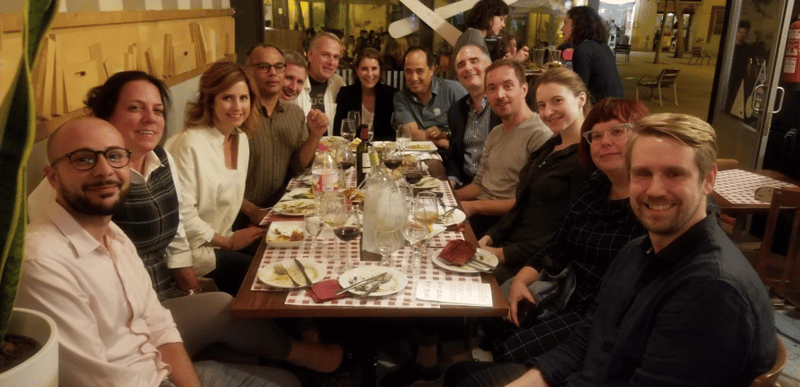
The Momenta team enjoys an evening of tapas and deep-industry conversation in Barcelona.
![]()

